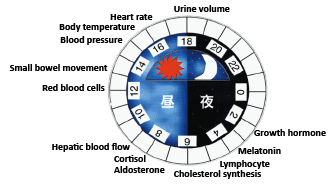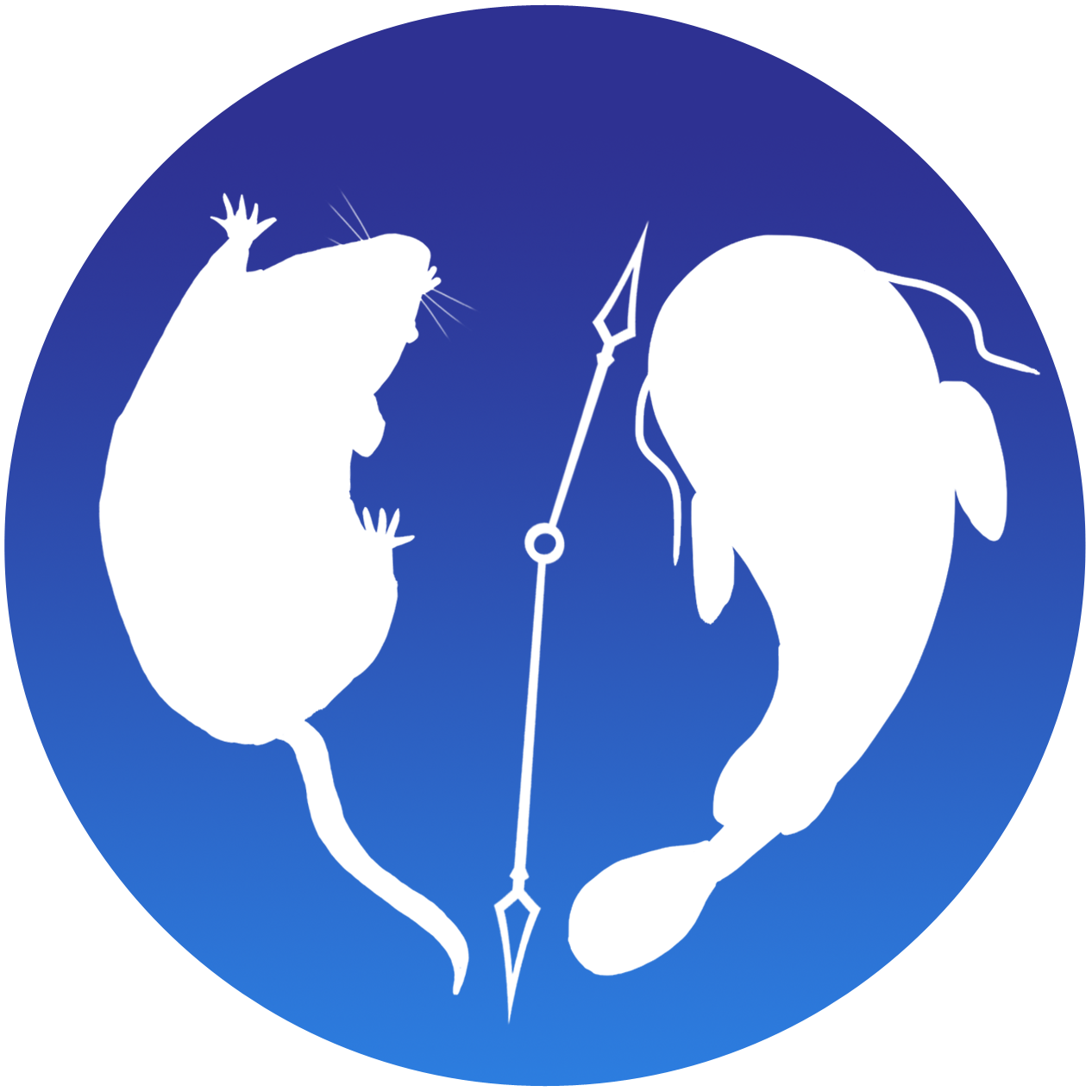This website is for the Laboratory of Animal Physiology at Meiji University.
The Research in the Animal Physiology Laboratory explores the mechanisms of biological rhythms, the fundamental phenomenon of life. We investigate on the scientific theme: “Know and use the biological rhythms”.
Our aim is to understand the physiological mechanism of biological clocks, and discover appropriate timings of medication and feeding fitted to the circadian variation of physiological functions. We are attempting to contribute medical and agricultural development.
You can get information for our research on this site.

RESEARCH
Do you know that we have “clock” in our body? We have a clock called “biological clock”. There are a variety of clocks depending on the period. Among them, we especially study “circadian” clock that displays oscillations of about 24 hours. The 24-hour rhythm called circadian rhythm. The term circadian comes from the Latin circa, meaning "around" (or "approximately"), and diēm, meaning "day".
Rhythmicity in organisms
Circadian rhythms are the fundamental phenomena of life that are found in most living things, including microorganism, plants, animals and humans. The rhythms are produced by the rotation of the earth on its axis. Some organisms show circannual (a year) and circalunar (a month) rhythms produced by the period of revolution of earth and the period of revolution of moon, respectively.
The first recorded observation of an endogenous circadian oscillation was by the French scientist Jean-Jacques d'Ortous de Mairan in 1729. He noted that 24-hour patterns in the movement of the leaves of the plant Mimosa pudica continued even when the plants were kept in constant darkness. This first experiment showed an endogenous clock existed in the plant. In the present day, it is considered that organisms inhabiting the earth have been getting various kinds of rhythmicity in order to adapt to environment over a long period of time.
Day-night variations in human physiological functions
In human body, many kinds of physiological functions have circadian rhythms.
Fig.1 shows physiological functions that are found day-night variations. As you can see, many kinds of physiological functions have day-night variations, and these variations are different in the peak time. The peak time of the function sets to when the functions are most needed in human body. These rhythms are surprisingly correct and the peak times are appeared in the same time every day.
Fig.1
The diagram shows the peak time of some human physiological functions on a 24 hour clock.You can see many physiological functions displays day-night variations.

Future direction of our study
From a lot of knowledge, we have begun to understand the mechanism of biological clock. However, many questions still remain unclear. We are hardly working to find the answer of the question, “How can animals keep circadian rhythms accurately?” Also, as you can see in Fig.1, that shows many physiological functions have day-night variations. Now, chronotherapy is getting attention as a new medication that are administered according to a schedule that corresponds to a person's rhythms in order to maximize effectiveness and minimize side effects of the therapy. In our laboratory, we study to find out a time-dependent pharmacological effect of a medicine. Also, lipid metabolism has day-night variations. We are now working to develop more efficient technologies in stockbreeding and aqua farming, for example, changing of feeding time and finding more efficient light schedule in the field in producing domestic animals and cultured fishes.
Research theme
Students in our lab can select four teams.
Chronobiology team:Studying the mammalian central circadian clock, especially suprachiasmatic nucleus (SCN) of hypothalamus.
Chronotherapy team:Studying the usage of circadian cycle in the application of therapy
Chrono-nutrition team:Studying the usage of circadian cycle in the stockbreeding and aqua farming
Forward genetics team:Studying the identification unknown clock-related gene by QTL analysis. This team was derived from the Chronobiology team.
CONTACT
Email: chrono@meiji.ac.jp
Lab Phone: +81-44-934-7823
Address: Our laboratory is located in the Area 1 Building-5 at the Ikuta campus (room #5-405).
1-1-1, Higashimita, Tama-ku, Kawasaki, Kanagawa 214-8571, Japan
Campus map: http://www.meiji.ac.jp/cip/english/about/campus/ik_campus.html




